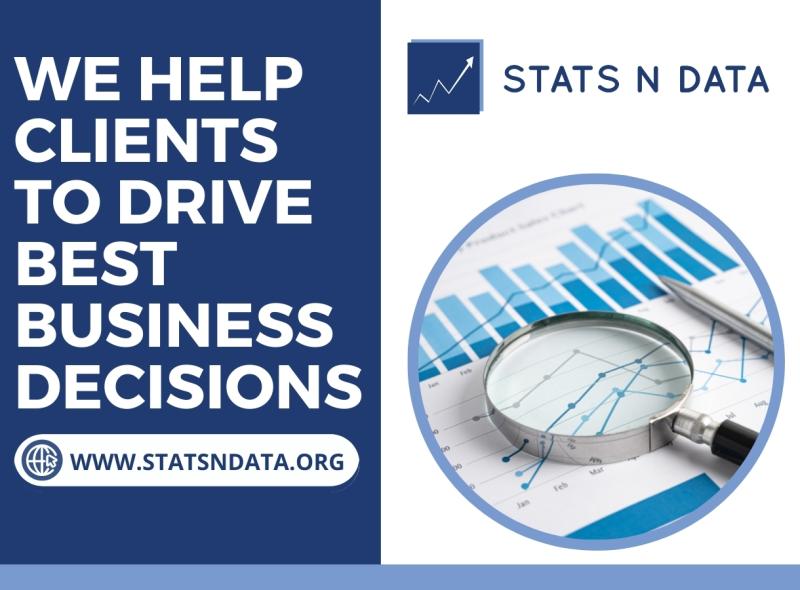Press release
Provider Data Management Solution Market 14.00% CAGR Growth Insights from Availity Kyruus LexisNexis ApexonHealth Knipper CAQH Andros VerityStream
The Provider Data Management (PDM) Solution market is experiencing significant growth, driven by the increasing need for accurate and comprehensive provider information across the healthcare ecosystem. As healthcare organizations strive to enhance operational efficiencies, improve patient outcomes, and comply with regulatory requirements, the demand for robust data management solutions has surged. These solutions enable healthcare providers to maintain up-to-date records of healthcare professionals, streamline credentialing processes, and ensure better coordination of care. The market is projected to grow at a compound annual growth rate (CAGR) of 14.00% from 2025 to 2032, reflecting a robust trend towards digital transformation in healthcare data management.You can access a sample PDF report here: https://www.statsndata.org/download-sample.php?id=116637
This growth is anticipated to be fueled by several factors, including the rising complexity of healthcare networks, the increasing prevalence of data breaches, and the growing emphasis on patient-centric care models. Healthcare organizations are recognizing the value of accurate provider data as it plays a critical role in improving efficiency and ensuring compliance with various regulations. As a result, investments in PDM solutions are becoming a strategic priority for healthcare systems and payers. By 2032, the market is expected to surpass significant valuation thresholds, indicating a strong commitment to leveraging technology for improved provider data accuracy and management. This trend not only supports operational excellence but also enhances the overall quality of care delivered to patients.
The Provider Data Management Solution market has emerged as a pivotal sector within healthcare, focusing on the systematic management of provider data crucial for operational efficiency and improved patient outcomes. As healthcare organizations increasingly recognize the importance of accurate and accessible data, the scope of Provider Data Management expands to cover various applications, including patient care optimization, operational streamlining, and compliance adherence.
Recent developments in this market have been driven by significant technology breakthroughs, including advancements in artificial intelligence and machine learning. These technologies enhance the capabilities of Data Management Solutions, enabling healthcare providers to maintain high standards of Data Quality Management and Data Governance. Furthermore, strategic partnerships among technology providers and healthcare organizations are fostering innovation, allowing for the seamless integration of Data Integration Solutions into existing systems. These collaborations are crucial for enhancing data security and ensuring compliance with evolving regulations.
For executives, investors, and decision-makers, understanding the dynamics of this market is vital. The integration of advanced Data Management Software and Healthcare Provider Solutions can lead to improved patient outcomes while also streamlining operations and reducing costs. The future of the Provider Data Management Solution market looks promising, with ongoing innovations poised to reshape the landscape of Healthcare Data Management.
Key Growth Drivers and Trends
The growth of the Provider Data Management Solution market is propelled by several key drivers, including sustainability initiatives, digitisation trends, and shifting consumer expectations towards enhanced healthcare services. As healthcare becomes increasingly digital, providers are compelled to adopt best practices for provider data management solutions that align with modern consumer preferences.
Transformative trends are emerging in the market, particularly the integration of AI and machine learning technologies into Data Management Solutions. This integration is not only improving the efficiency of data processing but also enhancing data quality, which is essential for effective Data Quality Management. Moreover, the demand for product customization is leading to the development of tailored solutions that address specific challenges faced by healthcare providers.
Emerging technologies such as blockchain and the Internet of Things (IoT) are also gaining traction, offering new avenues for innovation in data security management and compliance solutions. As these technologies evolve, they present opportunities for healthcare organizations to enhance their data governance frameworks and improve overall operational efficiency.
Market Segmentation
To gain a clearer understanding of the Provider Data Management Solution market, we can segment it based on type and application. This segmentation helps identify specific opportunities and challenges within each category.
Segment by Type:
- Cloud-Based Solutions: These solutions provide scalable and flexible options for healthcare providers, enabling easier access to data management services.
- Web-Based Solutions: Web-based offerings facilitate data access from various locations, ensuring that healthcare professionals can retrieve and manage provider data seamlessly.
Segment by Application:
- Large Enterprises: Large healthcare institutions often require comprehensive data management solutions to handle vast amounts of data and ensure compliance.
- Small and Medium Enterprises (SMEs): SMEs are increasingly adopting Data Management Solutions to enhance operational efficiency and improve patient care without the overhead of large-scale infrastructure.
This segmentation highlights the diverse needs of healthcare providers and the importance of tailored solutions that cater to different organizational sizes and types.
Competitive Landscape
The Provider Data Management Solution market is characterized by a competitive landscape featuring several key players committed to innovation and excellence. The following companies stand out for their contributions to the market:
- Availity: Focuses on enhancing healthcare collaboration through its data management solutions, facilitating better patient outcomes through improved data sharing.
- Kyruus: Known for its innovative provider search and data management tools, Kyruus has expanded its offerings to include advanced analytics capabilities.
- LexisNexis: Offers comprehensive data governance solutions, helping healthcare organizations maintain compliance and improve data accuracy.
- ApexonHealth: Specializes in data integration solutions that streamline provider data management processes for healthcare organizations.
- Knipper: Provides innovative data management services, focusing on compliance and operational efficiency for pharmaceutical and healthcare providers.
- CAQH: A leader in healthcare data management, CAQH offers solutions that enhance data quality and streamline administrative processes.
- Andros: Provides cutting-edge technology solutions for provider data management, emphasizing the importance of accurate and reliable data.
- VerityStream: Focuses on credentialing and compliance solutions, enhancing the efficiency of provider data management.
- Simplify Healthcare: Offers tailored solutions for provider data management, focusing on operational efficiency and patient care improvements.
- NextGate: Specializes in patient matching and data integration solutions to enhance healthcare data accuracy and accessibility.
- Symplr: Provides comprehensive data management software that helps healthcare organizations improve data quality and governance.
- Change Healthcare: A major player in healthcare technology, Change Healthcare offers a broad range of data management solutions tailored for healthcare providers.
- HealthEC: Focuses on integrated data management solutions that enhance healthcare delivery and improve patient outcomes.
- Perspecta: Provides data integration and management services, helping healthcare organizations navigate complex data environments.
- SKYGEN USA: Specializes in healthcare technology solutions that streamline provider data management and enhance operational efficiency.
These players are continuously innovating through launches, expansions, and partnerships, contributing to the evolving landscape of Provider Data Management Solutions.
Opportunities and Challenges
The Provider Data Management Solution market presents numerous opportunities for growth and innovation, particularly in untapped niches and evolving buyer personas. As healthcare providers seek more effective ways to manage their data, there is an increasing demand for specialized Data Management Services that cater to specific needs, such as compliance management and data quality enhancement.
However, the market is not without its challenges. Regulatory hurdles often complicate the implementation of new data management solutions, requiring organizations to navigate complex compliance landscapes. Additionally, supply chain gaps can hinder the availability of necessary technology and resources, posing significant obstacles for healthcare organizations seeking to adopt new data management solutions.
To address these challenges, healthcare providers and technology companies must collaborate more closely, sharing insights and resources to develop comprehensive strategies that ensure effective data compliance management and enhance overall data governance.
Technological Advancements
The healthcare industry is undergoing a technological renaissance, with cutting-edge tools transforming Provider Data Management Solutions. Artificial intelligence is at the forefront of this transformation, providing capabilities that enhance data processing and analysis. Digital twins are enabling healthcare organizations to create virtual representations of their operations, allowing for improved data integration and decision-making.
The integration of IoT devices is also reshaping the landscape, allowing for real-time data collection and monitoring, which enhances data quality and security. Virtual reality applications are beginning to find their place in provider data management, offering immersive training and simulation experiences that enhance workforce capabilities.
Blockchain technology is revolutionizing data security management, providing a decentralized and tamper-proof mechanism for storing sensitive healthcare information. These technological advancements are driving the shift towards more efficient and effective Data Management Solutions, positioning healthcare organizations to better serve their patients while ensuring compliance and data integrity.
Research Methodology and Insights
At STATS N DATA, our insights into the Provider Data Management Solution market are derived from a rigorous research methodology that combines both top-down and bottom-up approaches. Our team conducts extensive primary and secondary data collection, utilizing interviews with industry experts, surveys, and comprehensive analysis of market trends.
The multi-layer triangulation process ensures that our insights are robust and reliable, allowing us to deliver actionable recommendations for stakeholders in the healthcare sector. By focusing on key trends, challenges, and opportunities within the Provider Data Management Solution market, STATS N DATA positions itself as a trusted authority in Healthcare Data Management.
As we move forward, our commitment to providing in-depth analysis and data-driven insights will continue to empower healthcare organizations to make informed decisions, ultimately leading to better patient outcomes and enhanced operational efficiency.
Get 30% Discount On Full Report: https://www.statsndata.org/ask-for-discount.php?id=116637
In the rapidly evolving landscape of healthcare, a prominent player in the industry found themselves grappling with a critical issue: the accuracy and completeness of their provider data. As the organization expanded its network of healthcare providers, inconsistencies began to emerge in their databases, leading to significant challenges in operations. Duplicate entries, outdated information, and conflicting data sources not only hampered the efficiency of their internal processes but also threatened their reputation among patients and partners alike. The complexity of managing provider information across various systems became a daunting task, causing delays in patient care and frustrating interactions with healthcare professionals. This situation highlighted a pressing need for a comprehensive solution to streamline and enhance provider data management, ensuring the organization could maintain its commitment to delivering high-quality healthcare.
Recognizing the urgency of the situation, the organization enlisted the expertise of a specialized data analytics firm renowned for its innovative strategies. Through a meticulous analysis of the existing provider data management processes, the team identified key pain points and areas for improvement. They introduced a groundbreaking strategy that focused on a centralized provider data management solution, integrating advanced algorithms and machine learning techniques to cleanse and enrich the data within the organization's systems. This approach not only addressed the issues of accuracy and completeness but also facilitated real-time updates and seamless data sharing among different departments. By implementing a user-friendly platform that allowed for easy access and modification of provider information, the organization could ensure that all stakeholders had the most current and reliable data at their fingertips, fostering collaboration and enhancing operational efficiency.
The results of this transformative strategy were nothing short of remarkable. Within just a few months of implementation, the organization experienced a significant increase in market share, driven by improved provider engagement and enhanced patient satisfaction. The efficiency of their operations soared, with a reduction in the time spent on data reconciliation and manual updates, allowing staff to focus more on critical patient care activities. As a result, revenue streams also began to flourish, with a noticeable uptick in new partnerships and contracts, all attributed to the newfound confidence in their data integrity. The organization's reputation as a reliable healthcare provider solidified, as they could now offer accurate and timely information to patients and partners alike. This case not only underscores the importance of robust provider data management but also highlights how strategic data analysis can pave the way for substantial improvements in efficiency, market presence, and overall profitability.
For customization requests, please visit: https://www.statsndata.org/request-customization.php?id=116637
Q: What is provider data management?
A: Provider data management refers to the systematic approach of collecting, maintaining, and utilizing data that pertains to healthcare providers. This includes information about doctors, nurses, hospitals, clinics, and other entities involved in delivering healthcare services. Provider data management encompasses various activities, such as data entry, validation, storage, retrieval, and sharing of provider information. It aims to ensure that accurate and up-to-date information is readily available to stakeholders within the healthcare system. Effective provider data management is crucial for ensuring efficient operations, enhancing patient care, and complying with regulatory requirements.
Q: Why is data quality important in healthcare?
A: Data quality is vital in healthcare because it directly impacts patient safety, care outcomes, and operational efficiency. High-quality data ensures that healthcare providers have access to accurate and complete information when making clinical decisions. This minimizes the risk of errors, such as medication mistakes or misdiagnoses, which can have serious consequences for patients. Additionally, quality data supports improved reporting and analytics, enabling healthcare organizations to identify trends, measure performance, and comply with regulations. Poor data quality can lead to inefficiencies, increased costs, and diminished trust in healthcare systems.
Q: How can I improve my data governance policies?
A: Improving data governance policies involves several key steps. Firstly, establish a clear data governance framework that outlines roles, responsibilities, and processes related to data management within the organization. Secondly, create a data governance committee that includes representatives from various departments, ensuring diverse perspectives are considered. Next, develop comprehensive data management policies that address data quality, privacy, security, and compliance with regulations. Regular training and awareness programs for staff are also essential to promote adherence to these policies. Finally, implement monitoring and auditing mechanisms to assess the effectiveness of data governance policies and make necessary adjustments.
Q: What are the key features of data management solutions?
A: Key features of data management solutions typically include data integration, data quality management, master data management, data governance, and reporting and analytics capabilities. Data integration allows for the seamless combination of data from various sources, ensuring a unified view of information. Data quality management tools help identify and rectify inaccuracies and inconsistencies in data. Master data management focuses on creating a single, authoritative source of critical business data. Data governance features support compliance with regulations and establish policies for data usage. Additionally, robust reporting and analytics capabilities provide insights into data trends and performance metrics.
Q: How to ensure compliance in data management?
A: Ensuring compliance in data management requires a comprehensive understanding of relevant regulations, such as HIPAA in the United States or GDPR in Europe, and implementing policies that align with these requirements. Start by conducting a thorough assessment of current data management practices to identify any gaps in compliance. Develop and document data management policies that address data privacy, security, and access controls. Regular training sessions for employees on compliance requirements and best practices are essential. Additionally, establish monitoring and auditing processes to continuously evaluate compliance and make necessary adjustments based on regulatory changes or organizational needs.
Q: What challenges do healthcare providers face in data integration?
A: Healthcare providers encounter several challenges in data integration, including disparate data sources, varying data formats, and a lack of standardized protocols. Many healthcare organizations have multiple systems, such as electronic health records, billing systems, and patient management systems, that do not seamlessly communicate with each other. This can lead to data silos, where information is isolated and not easily accessible. Additionally, differing data formats and standards can complicate the integration process. Other challenges include ensuring data accuracy and consistency during integration, managing data privacy and security concerns, and addressing resistance to change among staff.
Q: How does master data management benefit healthcare?
A: Master data management (MDM) benefits healthcare by providing a single, authoritative source of critical data about patients, providers, and other entities. This reduces data redundancy and discrepancies, improving overall data quality and reliability. MDM supports better decision-making by ensuring that all stakeholders have access to consistent and up-to-date information. It also facilitates compliance with regulatory requirements by maintaining accurate records. Additionally, MDM enhances operational efficiency by streamlining processes, reducing the time spent reconciling conflicting data, and enabling healthcare organizations to focus on delivering high-quality care.
Q: What are the best practices for data security in healthcare?
A: Best practices for data security in healthcare include implementing strong access controls, conducting regular risk assessments, and utilizing encryption for sensitive data. Access controls should ensure that only authorized personnel can access patient data, with role-based permissions to limit exposure. Regular risk assessments help identify vulnerabilities in the system that could be exploited by cyber threats. Encryption protects data both at rest and in transit, making it unreadable to unauthorized users. Additionally, healthcare organizations should provide ongoing training for employees on security awareness and incident response, establish incident response plans, and regularly update software and systems to patch security vulnerabilities.
Q: How can data management solutions enhance patient care?
A: Data management solutions enhance patient care by providing healthcare providers with timely access to accurate and comprehensive patient information. This enables better clinical decision-making, personalized treatment plans, and improved care coordination among different providers. With integrated data management systems, healthcare professionals can easily share patient records, reducing duplication of tests and procedures and minimizing delays in care. Data management solutions also support analytics that can identify trends in patient populations, leading to proactive interventions and improved health outcomes. Ultimately, by streamlining access to information, data management solutions contribute to higher quality and more efficient patient care.
Q: What factors should be considered when choosing a data management service?
A: When choosing a data management service, several factors should be considered. First, evaluate the provider's experience and expertise in the healthcare domain, as this ensures they understand the unique challenges and regulations of the industry. Second, consider the scalability of the solution, ensuring it can grow with your organization's needs. Third, assess the solution's compatibility with existing systems and data formats to facilitate integration. Data security features are also critical, so ensure the service adheres to regulatory requirements and best practices. Additionally, consider the level of customer support provided, the costs involved, and any user training resources available to ensure a smooth implementation.
Q: How do data management solutions impact operational efficiency?
A: Data management solutions significantly enhance operational efficiency by automating data-related processes and reducing manual workloads. By centralizing data storage and providing tools for data integration, these solutions eliminate redundancies and streamline workflows. Healthcare providers can quickly access the information they need, reducing the time spent on administrative tasks. Improved data quality and accuracy also minimize errors, leading to fewer delays and rework. Furthermore, analytics capabilities allow organizations to identify inefficiencies and areas for improvement, enabling proactive decision-making and resource allocation. Overall, effective data management solutions lead to smoother operations, reduced costs, and enhanced productivity in healthcare settings.
Q: What trends are shaping the future of data management in healthcare?
A: Several trends are shaping the future of data management in healthcare, including the increasing adoption of artificial intelligence (AI) and machine learning (ML) for data analysis, the rise of interoperability standards, and the emphasis on patient-centric data management. AI and ML are being used to derive insights from large datasets, enhancing predictive analytics and decision support. Interoperability standards, such as Fast Healthcare Interoperability Resources (FHIR), are gaining traction, facilitating seamless data exchange between disparate systems. Additionally, there is a growing focus on patient engagement, with organizations prioritizing the collection of patient-generated data to offer more personalized care. Lastly, data privacy and security remain paramount, driving innovations in data protection technologies.
Q: What are the benefits of using provider data management tools?
A: Provider data management tools offer numerous benefits, including improved data accuracy and consistency, enhanced compliance with regulatory requirements, and streamlined operations. By automating data entry and validation processes, these tools reduce the risk of human error and ensure that provider information is up-to-date. Improved compliance with regulations, such as HIPAA, comes from better data governance and security practices supported by these tools. Additionally, provider data management tools facilitate better analytics and reporting, allowing healthcare organizations to make informed decisions based on reliable data. Ultimately, these tools contribute to better patient care and increased operational efficiency.
Q: How to assess data quality in healthcare organizations?
A: Assessing data quality in healthcare organizations involves several steps. Start by defining key data quality dimensions, such as accuracy, completeness, consistency, timeliness, and relevance. Next, conduct data profiling to analyze existing datasets and identify any issues related to these dimensions. This may involve sampling data and comparing it against trusted sources. Establishing data quality metrics and benchmarks will help measure performance over time. Engaging stakeholders from various departments can provide insights into data usage and quality expectations. Finally, implement regular data quality audits and feedback loops to continuously monitor and improve the quality of data within the organization.
Q: What is the role of data governance in healthcare organizations?
A: The role of data governance in healthcare organizations is to establish a framework for managing data assets effectively and responsibly. It involves defining policies, procedures, and standards for data management, ensuring data quality, privacy, and security. Data governance provides a structured approach to data management, promoting accountability and transparency. It also facilitates compliance with regulatory requirements by outlining the responsibilities of data stewards and ensuring that data is used ethically and in accordance with established guidelines. Furthermore, data governance supports strategic decision-making by ensuring that decision-makers have access to reliable and high-quality data, thereby enhancing overall organizational performance.
Related Reports
Wood Pulp Processing Equipment Market
https://www.statsndata.org/report/wood-pulp-processing-equipment-market-53472
Sim Chip Market
https://www.statsndata.org/report/sim-chip-market-147113
Single Use Continuous Chromatography Systems Market
https://www.statsndata.org/report/single-use-continuous-chromatography-systems-market-287299
Canister Load Cell Market
https://www.statsndata.org/report/canister-load-cell-market-19
Internet Connected Video Wireless Intercom Equipment Market
https://www.statsndata.org/report/internet-connected-video-wireless-intercom-equipment-market-149894
John Jones
Sales & Marketing Head | Stats N Data
Email: sales@statsndata.org
Website: www.statsndata.org
STATS N DATA is a trusted provider of industry intelligence and market research, delivering actionable insights to businesses across diverse sectors. We specialize in helping organizations navigate complex markets with advanced analytics, detailed market segmentation, and strategic guidance. Our expertise spans industries including technology, healthcare, telecommunications, energy, food & beverages, and more.
Committed to accuracy and innovation, we provide tailored reports that empower clients to make informed decisions, identify emerging opportunities, and achieve sustainable growth. Our team of skilled analysts leverages cutting-edge methodologies to ensure every report addresses the unique challenges of our clients.
At STATS N DATA, we transform data into knowledge and insights into success. Partner with us to gain a competitive edge in today's fast-paced business environment. For more information, visit https://www.statsndata.org or contact us today at sales@statsndata.org
This release was published on openPR.
Permanent link to this press release:
Copy
Please set a link in the press area of your homepage to this press release on openPR. openPR disclaims liability for any content contained in this release.
You can edit or delete your press release Provider Data Management Solution Market 14.00% CAGR Growth Insights from Availity Kyruus LexisNexis ApexonHealth Knipper CAQH Andros VerityStream here
News-ID: 4178897 • Views: …
More Releases from STATS N DATA
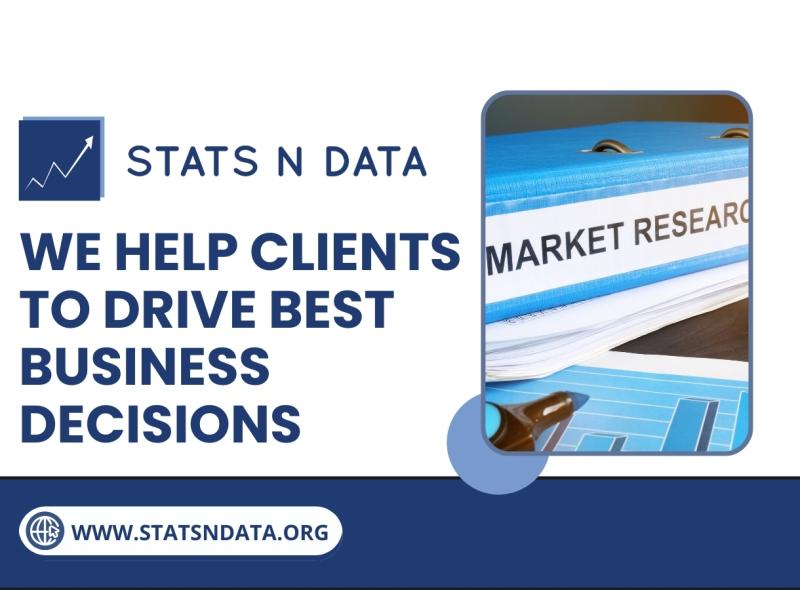
Nitro-Infused Tea Market Sees 11.20% Surge with Starbucks, Rise Brewing, Novus T …
The Nitro-Infused Tea market is experiencing a notable surge in popularity, driven by the growing consumer demand for innovative beverage options that deliver unique taste experiences and enhanced refreshment. Nitro-infused teas, which involve infusing traditional tea with nitrogen to create a creamy texture and frothy head, are becoming increasingly appealing to health-conscious consumers. This innovative approach not only enhances the flavor profile of tea but also provides a refreshing alternative…
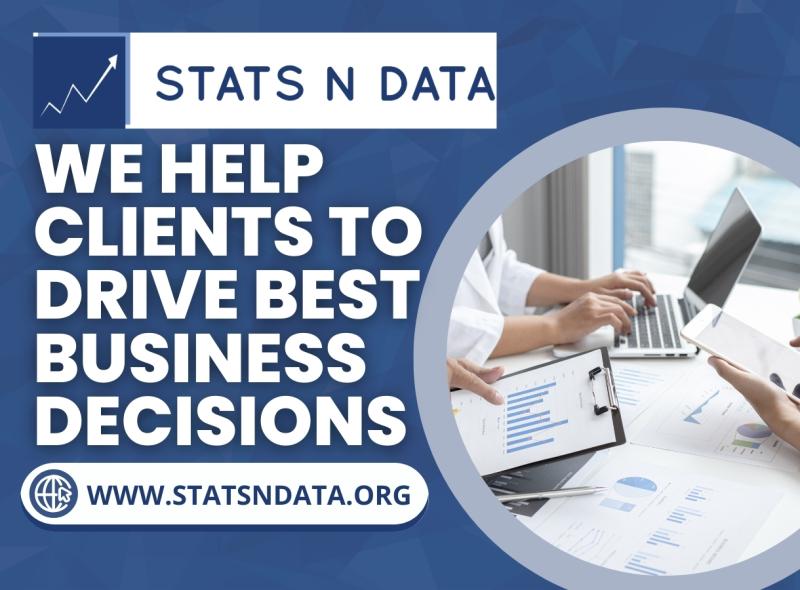
Ultra-thin Flexible PCB Market 11.20% CAGR Growth with Rocket PCB Compass Techno …
The ultra-thin flexible printed circuit board (PCB) market is experiencing significant growth, driven by advancements in technology and increasing demand across various industries. These ultra-thin flexible PCBs offer substantial advantages, including lightweight design, high flexibility, and improved space efficiency, making them ideal for applications in consumer electronics, healthcare devices, automotive systems, and wearable technology. As manufacturers strive for miniaturization and enhanced performance, the adoption of ultra-thin flexible PCBs is expected…
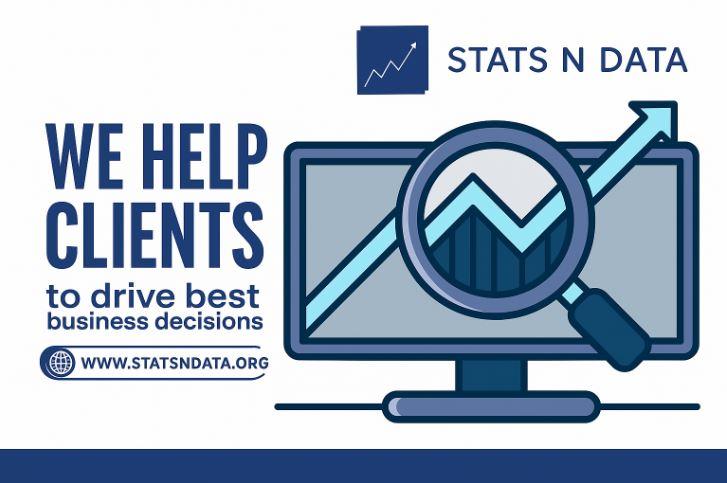
Lipidomics Services Market 11.20% CAGR Growth with BGI Genomics Lipotype Metabol …
The lipidomics services market is experiencing significant growth, driven by advancements in analytical techniques and an increasing understanding of the role of lipids in various biological processes. Lipidomics, the comprehensive study of lipids within biological systems, is becoming increasingly important in fields such as drug development, disease diagnosis, and personalized medicine. As researchers continue to uncover the complexities of lipid metabolism and its implications for health and disease, the demand…
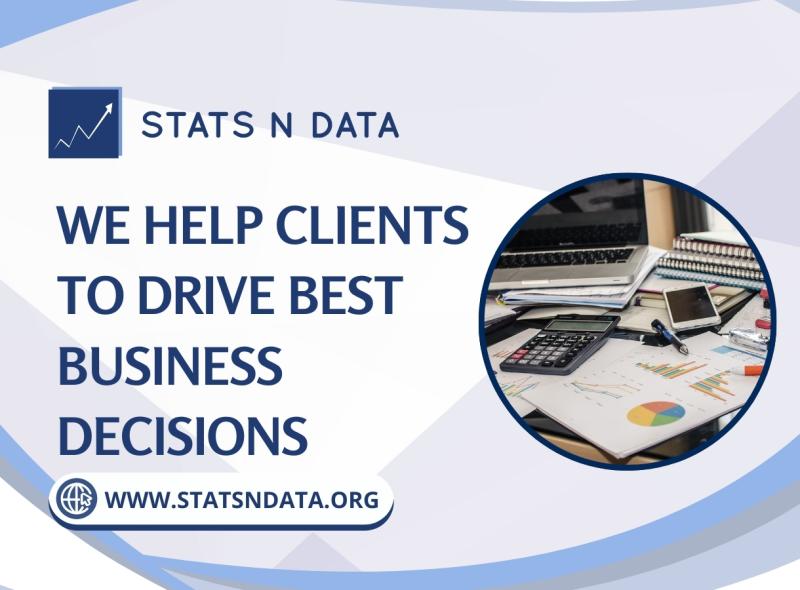
Durable Polyimide Aerogel Market 11.20% CAGR Growth with Blueshift Materials Jia …
The durable polyimide aerogel market is poised for significant growth, driven by the increasing demand for lightweight and high-performance materials across various industries. As a highly efficient thermal insulator, polyimide aerogel is gaining traction in sectors such as aerospace, automotive, electronics, and construction. Its unique properties, including low thermal conductivity, high thermal stability, and excellent mechanical strength, make it an ideal choice for applications where weight reduction and thermal management…
More Releases for Management
Gym Management Software Market By Functions - Scheduling Appointments, Waitlist …
MarketResearchReports.Biz announces addition of new report "Gym Management Software Market - Global Industry Analysis, Size, Share, Growth, Trends and Forecast 2017 - 2025" to its database.
Gym management software is a software solution which allows the users to manage the different processes associated with running a gym in an efficient and effective manner. These software solutions are generally multifunctional and can manage all the diverse processes associated with managing a gym…
Water Network Management, Water Network Management trends, Water Network Managem …
MarketStudyReport.com adds a new 2018-2023 Global Water Network Management Market Report focuses on the major drivers and restraints for the global key players providing analysis of the market share, segmentation, revenue forecasts and geographic regions of the market.
This report presents a comprehensive overview, market shares, and growth opportunities of by Water Network Management product type, application, key manufacturers and key regions. Over the next five years, Water Network Management will…
Cloud Project Portfolio Management Market Report 2018: Segmentation by Applicati …
Global Cloud Project Portfolio Management market research report provides company profile for CA Technologies (New York, U.S.), HPE (California, U.S.), Changepoint Corporation (Richmond Hill, Ontario), Clarizen, Inc. (California, U.S.), Microsoft Corporation (Washington, U.S.) and Others.
This market study includes data about consumer perspective, comprehensive analysis, statistics, market share, company performances (Stocks), historical analysis 2012 to 2017, market forecast 2018 to 2025 in terms of volume, revenue, YOY growth rate, and…
Prescriptive analytics Market Outlook 2025 focus On: Risk Management, Operation …
A detailed market study on "Global Prescriptive analytics Market" examines the performance of the Prescriptive analytics Market. It encloses an in-depth Research of the Prescriptive analytics Market state and the competitive landscape globally. This report analyzes the potential of Prescriptive analytics Market in the present and the future prospects from various prospective in detail.
Get Free Sample Report@ https://databridgemarketresearch.com/request-a-sample/?dbmr=global-prescriptive-analytics-market
Prescriptive analytics market accounted for USD 1.20 billion growing at a CAGR of…
Facility Management Market Solutions & Services (Real Estate & Lease Management, …
ReportsWeb.com added “Global Facility Management Market to 2025” to its vast collection of research Database. The report classifies the global Facility Management Market in a precise manner to offer detailed insights into the aspects responsible for augmenting as well as restraining market growth.
Facility Management is an essential part which handles all functions related to enterprise and helps in streaming all the operations with reducing cost. Managing life cycle management of…
Telecom Expense Management Market Analysis For Financial Management, Order Manag …
The telecom expense management (TEM) market report provides analysis for the period 2014–2024, wherein the period from 2016 to 2024 is the forecast period and 2015 is the base year. The report covers all the major trends and technologies playing a key role in telecom expense management market growth over the forecast period. It also highlights the drivers, restraints, and opportunities expected to influence the market’s growth during the said…
